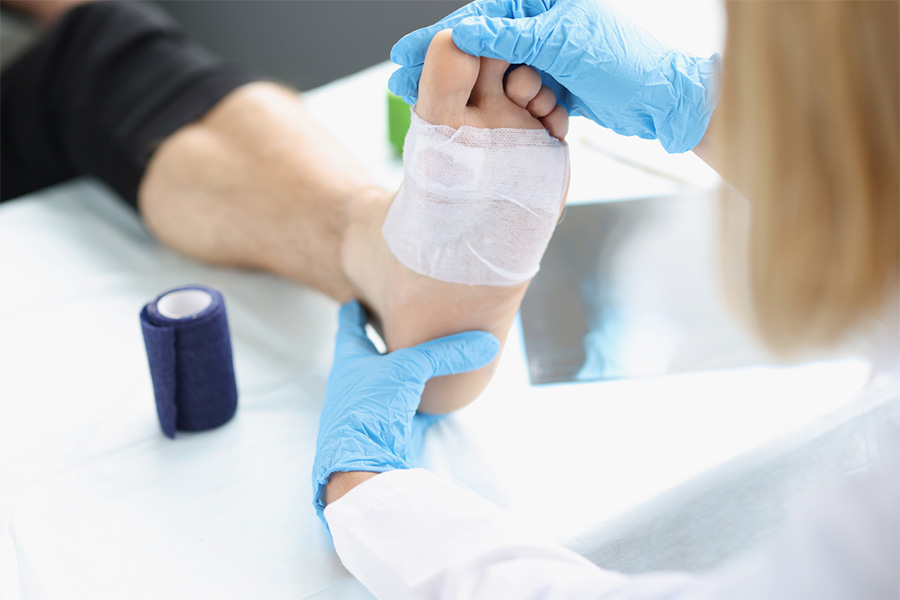Common warts are small growths on the skin caused by a viral infection. When a wart appears on the bottom of your foot, it is referred to as a plantar wart. Warts are contagious and can spread from one person to another. Most plantar warts usually go away without treatment or through self-care. However, you may opt to seek treatment from a licensed podiatrist to ensure the wart is taken care of effectively.
Symptoms
The common symptoms of plantar warts are:
- Rough and fleshy skin growths or lesions on the base of the toes or the heel
- Formation of thickened skin or callus where a wart has grown inward
- Tiny black dots which are actually clotted blood vessels
- Pain and discomfort when walking or standing due to growths on the foot
Foot warts can either be solitary or mosaic. A wart is solitary when only a single wart appears on the foot. Mosaic warts are a cluster of warts that show up in the same area of the foot.
Cause of Foot Warts
Plantar warts are caused by HPV or Human Papillomavirus. This particular virus may enter your body through breaks or tiny cuts on the bottom of your feet. When skin cells become infected with HPV, it makes the cells grow quicker, resulting in the formation of warts.
Everyone responds differently to HPV, and while it is contagious, not everyone who gets the virus will develop warts. Nonetheless, it can thrive and spread quickly, especially in warm and wet environments.
That said, the following groups of people are at a higher risk of developing foot warts or coming in contact with HPV:
- People who have occupations that require them to walk around barefoot and are exposed to communal areas, such as athletes, gymnasts, swimmers, and dancers.
- People with sweaty feet.
- People who share shoes or unwashed socks with other people.
- People who have a weak immune system.
- People who have skin-to-skin contact with someone who has foot warts or HPV.
When Should You Seek Treatment?
Although warts aren’t considered a serious health concern, it can be painful and uncomfortable to deal with. You should also consult your doctor if:
- The wart is bleeding or there is a change in color and appearance.
- The wart is causing discomfort that is a hindrance to your daily activities.
- You have a weakened immune system or immune system disorders.
- You’ve been trying to treat the wart, but treatment hasn’t helped or if the wart has multiplied.
Foot Warts Treatment in Cincinnati
There are a variety of ways to treat foot warts. However, using over-the-counter medications is not advisable because it doesn’t penetrate the thick skin on the sole of the foot. This causes them to rarely be effective enough to prevent the wart from returning.
If you want to remove your plantar warts, consult with a podiatrist for the proper treatment. Here at Cincinnati Foot & Ankle Care, we offer a variety of procedures to eliminate your foot warts, such as:
- Burning the wart with topical acid
- Freezing the wart with liquid nitrogen
- Laser surgery
- Surgical excision
Our podiatrists provide the latest, most appropriate, and comprehensive care for your foot care needs. We are dedicated to assisting you in regaining your health and living a pain-free life.
To arrange a consultation, call our location nearest you. You may also request an appointment online.





